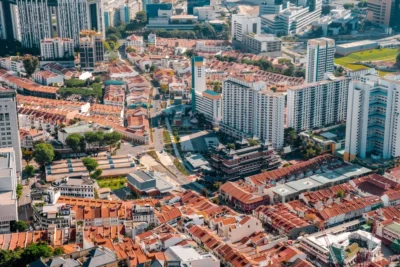China’s reopening boosts commercial real estate sentiment in APAC
This opening is leading towards an increased demand for overseas property from Chinese investors

The reopening of mainland China has boosted the sentiment in the commercial real estate sector in the Asia Pacific (APAC). As discussed by investment management company Schroders, the APAC commercial real estate sector has received a boost from China’s reopening, although investment activity has been depressed by higher interest rates in many countries.
Most APAC real estate markets are not moving in the same direction, but two trends are apparent. One is that many office markets are under pressure, and another is the upturn from a low base in the retail and hospitality segments of the real estate market, which the return of tourist travel in 2023 (especially from China) should support. Higher interest rates in much of the region have made bank financing harder to obtain, depressing real estate investment volumes.
Despite this, the Singapore office sector remains well-supported, and average rents for investment-grade office stock grew eight percent to nine percent last year. Against the positive background, owners of office assets continue to demand full prices, and cap rate expansion is likely to be moderate even with higher interest rates. However, the Singapore government continues to promote the revitalisation of the central business district (CBD) through the CBD Incentive Scheme, which encourages the conversion of offices to mixed use.
Related: High hopes: How China can reclaim its glory days
According to Inquirer.net, the easing of China’s border restrictions is leading to an increase in Chinese demand for overseas property, as stated by real estate agents and data from Australia to Singapore. Chinese interest is contributing to a boost in Singapore property prices, with Chinese students increasingly buying apartments in Sydney and Melbourne, and Chinese interest also growing in Thailand. Early signs suggest smaller flows than in previous episodes, but point to a desire from Chinese families to relocate assets and even themselves overseas.
Chinese demand for foreign property is likely to continue, due to fragile confidence in the Chinese real estate market, government tax rules and criticism of wealth accumulation, which make investing abroad more attractive. Foreign currency deposits at China’s commercial banks fell 16.2 percent in the year through February, which could suggest capital outflows.
The Property Report editors wrote this article. For more information, email: [email protected].
Recommended
Foreign demand recalibrates in Southeast Asia housing markets
Even amid global headwinds, Southeast Asia’s property markets hold appeal for foreign buyers
Tariffs and turmoil test Singapore homes as suburbs hold firm
Foreign levies, regional wars, and buyer fatigue are putting pressure on the city-state’s housing market
Gulf luxury markets lure global capital amid policy shift
Gulf nations are shaking off a reputation for overt bling to lead a post-pandemic luxury boom
China housing slump deepens as oversupply drags prices
Concerns remain over surplus inventory built by troubled property developers as prices continue to fall across all but a handful of major cities






